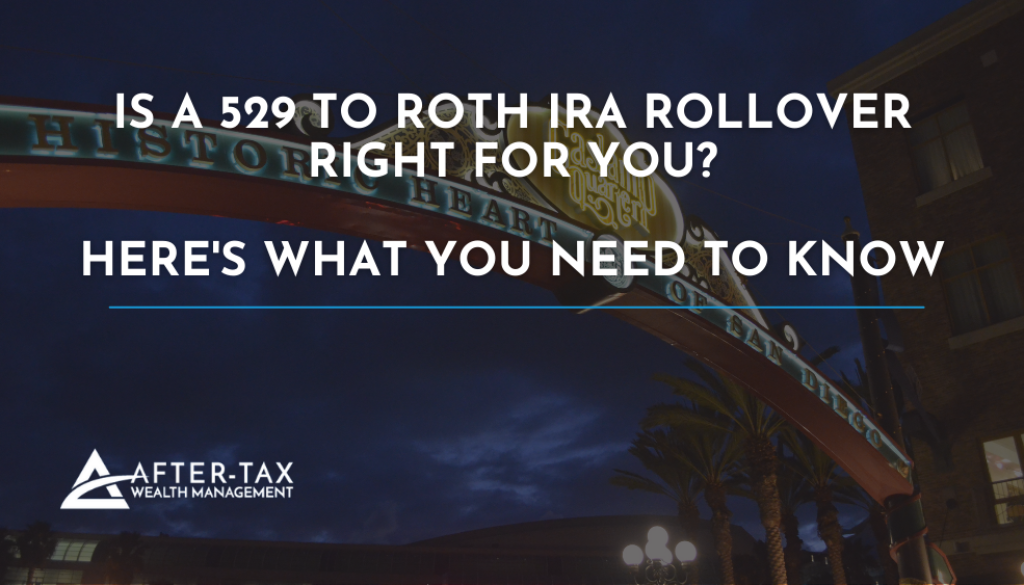Is a 529 to Roth IRA Rollover Right for You? Here’s What You Need to Know
If you have a 529 education savings plan, it can now be converted to a Roth IRA. Both plans are funded by after-tax money. Initially, the money put into a 529 plan had to be used toward education expenses. If, for whatever reason, the money wasn’t needed for educational expenses and it was withdrawn for other purposes, you would be subject to a penalty and capital gains taxes. That is not the case anymore. After the passage of the SECURE Act 2.0, 529 plan account owners or beneficiaries can roll over 529 funds into a beneficiary-owned Roth IRA tax-free and penalty-free. Meaning, if you put money into the 529 plan and your child receives a scholarship or doesn’t attend school, the leftover money can now be rolled over into a Roth IRA.
Is a 529 to Roth IRA rollover right for you? Here are a few pros and cons:
Pros:
· Flexibility
A 529 plan was not initially flexible; however, now it can be rolled over into a Roth IRA, providing more flexibility.
· Beneficiaries
Beneficiaries of your 529 plan will be allowed to convert a lifetime total of $35,000 from the 529 plan to a Roth IRA without owing taxes or being subject to a penalty. A beneficiary can have the same tax-advantaged benefit as the original owner and can regularly withdraw funds without the burden of taxes or penalties.
· Lower Fees
Generally, the fees associated with a Roth IRA are less than a 529 plan account.
Cons:
· Holding time
The 529 plan must have been opened for at least 15 years before a conversion is made.
· Potential tax liability
Some states may expect you to pay back any state-specific tax deductions you receive.
· Pause in growth
When funds are rolled over, the process can take time and your money may be temporarily out of the market, pausing its ability to grow.
· Rollover limitations
You are only allowed one rollover annually and cannot exceed the annual Roth contribution limit with a lifetime rollover limit of $35,000. It may take several years to move the full amount.
· Ownership
The 529 beneficiary must also be the owner of the Roth IRA and they must have earned income at least equal to the amount of the rollover.
Consult a financial professional
Everybody’s situation is different, therefore, the financial decisions you make will impact you differently than, for example, a family member or friend. Taking a proactive approach by seeking help from a financial professional may help you mitigate risk and offer insight into strategies you may not have thought about.
Important Disclosures:
The opinions voiced in this material are for general information only and are not intended to provide specific advice or recommendations for any individual. To determine which investment(s) may be appropriate for you, consult your financial professional prior to investing.
Investing involves risks including possible loss of principal. No investment strategy or risk management technique can guarantee return or eliminate risk in all market environments.
All information is believed to be from reliable sources; however, LPL Financial makes no representation as to its completeness or accuracy.
Sources:
Pros and Cons of a 529 Rollover to a Roth IRA | SmartAsset
Common 529 Plan Fees | Bankrate
529 Plan vs. Roth IRA: Which is best for college savings? (savingforcollege.com)
529 Savings Plan vs. Roth IRA for College (investopedia.com)
Roth IRA or traditional IRA or 401(k) – Fidelity
This article was prepared by LPL Marketing Solutions




